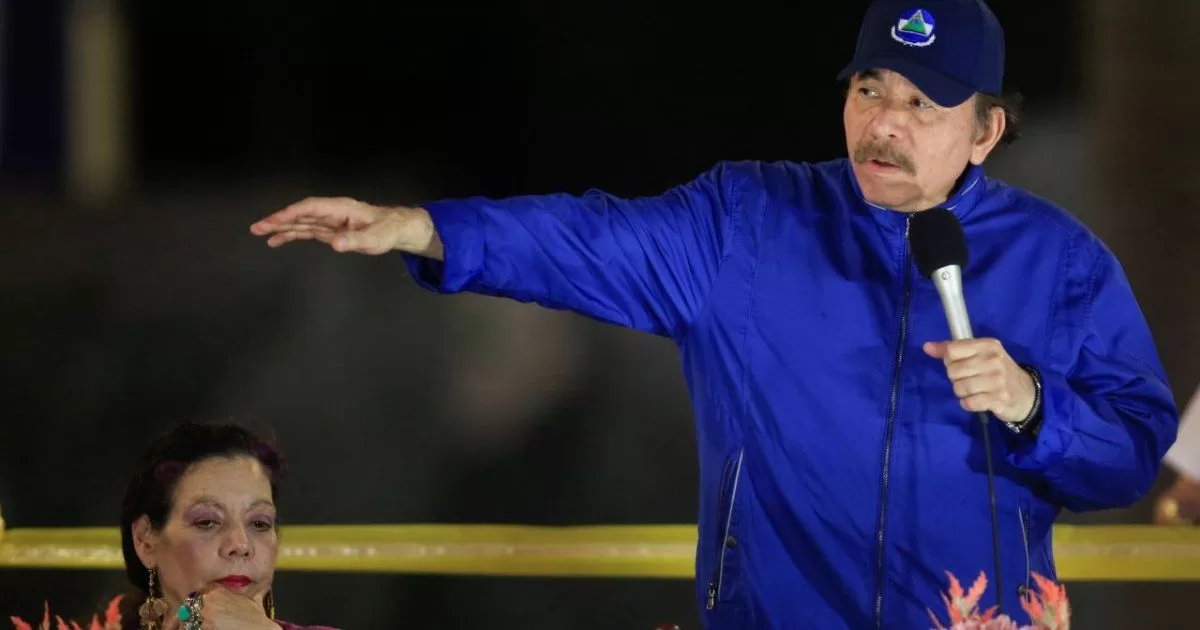MANAGUA — The American evangelical church Mountain Gateway, closed by the Nicaraguan regime after the arrest of 11 of its missionaries in the Central American country, denied having committed money laundering and claimed to have the documentation to prove it.
In a statement published on its website, the religious organization noted that it was “saddened” to learn that the Daniel Ortega regime withdrew its legal status to work in Nicaragua, where — according to the police — it managed “a money laundering network.” of capital together with another evangelical group.
“Puerta de la Montaña has documentation that demonstrates that all financing has been properly managed,” the statement said, referring to the money laundering accusation. He added that “he has been working under the NGO registry and the policies of the Nicaraguan government.”
The biblical organization added that it is confident that “when the government reviews the documentation, its questions will be resolved, the investigation will be concluded and all charges will be dropped.”
The detainees
On Tuesday, Nicaraguan police reported that they had detained 11 Nicaraguans who, along with three Americans who have not been captured, including an aviation industry businessman, were allegedly part of “a money laundering network” that “had as facade” to two Christian organizations: Puerta de la Montaña and Shaking the Nations.
According to the Sandinista police, the American Bruce Wagner, owner of the latter evangelical organization and of an aviation company, participated in the alleged illicit operations, who transferred capital to Nicaragua “to obtain money, properties of movable and immovable property and do business.” .
Wagner and his organization have not yet responded to the allegations.
The other Americans under investigation are John Britton Hancock and Jacob Britton Hancock, who according to the police registered a subsidiary of the Puerta de la Montaña organization to receive money transfers from the United States, operations that they had carried out since 2013.
The police indicated that both evangelical groups worked in rural areas of Nicaragua with the support of farmers whom they later named “evangelical pastors.” Their objective was to “make people believe” that they were helping the people by “bringing the word of God” but they were dedicated “to acquiring vehicles, properties, houses in residential areas and doing business,” the police say.
Bank accounts frozen
Among the 11 detainees are Nicaraguans Walner Omier Blandón Ochoa and Marisela de Fátima Mejía Ruiz, legal representative and financial manager of Puertas de la Montaña, respectively. Their bank accounts were blocked because they received money “without justification of origin and destination,” according to the government.
After the official accusation, Nicaraguan media released photographs of several American religious posing next to Nicaraguan police chiefs, and of officers of that institution participating in religious ceremonies with evangelical leaders, images that were published on the website of the police entity.
Puerta de la Montaña was closed on Thursday by the Nicaraguan government along with nine other non-profit associations, five of them Christian groups.
More than 300 religious organizations closed
A study released at the beginning of this month revealed that Ortega has closed or dissolved 342 religious organizations, of which 256 were evangelical associations, 43 Catholic and another 43 linked to other churches, as part of the more than 3,500 closed in the last two years. .
According to the report entitled “Closing of civic space” and prepared by the Nicaragua Never Again Human Rights Collective, although the Sandinista government has been accused of “persecuting and besieging” the Catholic Church, prohibiting its processions and banishing priests and nuns , evangelicals are also suffering “harassment and harassment” in that country, he maintained.
Nicaragua is experiencing a serious political and social crisis that began with protests that broke out in April 2018 and were violently repressed by the police, leaving 355 dead, more than 2,000 injured, thousands arrested at different times and hundreds of thousands exiles, according to humanitarian organizations.
Source: With information from AP


